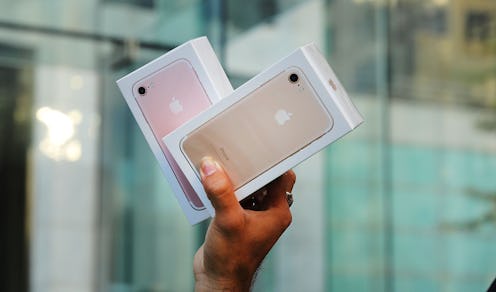News
So, Sleep Texting is a Thing That Exists
The Huffington Post published a story Monday confirming what many have long suspected: Technology is taking over our lives in scary, all-consuming ways. A phenomenon called sleep texting is apparently on the rise.
Reports from sleep disorder specialists say more and more people are texting several times a night while asleep. According to WebMD, teenagers are especially at risk for sleep texting. An increasing number of teens are reaching for their phones while asleep and sending texts, waking up the next morning with no memory of doing so.
"Four o'clock in the morning, 3 o'clock in the morning — it would just be a sentence of jumbled-up stuff," sleep-texter Megan told CBS New York. "I guess I got up and texted, and went back to bed, but I don't remember it."
Other sleep texters can be a bit more explicit. One young woman Elizabeth Dowdell, a professor of nursing at Villanova University, studied, had a habit of sending gushing, romantic texts to friends.
"A classmate texted her something about anatomy class, and her reply back was, 'I just love it. I love you! You're the light of my life,'" Dowdell said. "Then, there was an old boyfriend who texted her, and she sent responses like, 'I adore you, please come over,' while she was asleep. She was mortified when she realized."
Apart from prompting the concern of friends and relatives who are the lucky recipients of unintelligible (or overly affectionate) early morning texts, sleep texting has the negative side effect of interrupting "deep, restful REM sleep," according to experts.
"Sleep is a very important restorative process," Dr. Josh Werber, a sleep and snoring specialist, said. "And when we're not fully engaged in it, and not getting the amount we need, we're not having the same restorative effect on our brains -- and that affects our cognitive ability the next day."
For those who sleep text, experts recommend shutting off smartphones before bed, or moving them out of the bedroom entirely. Groundbreaking. For everyone else, it's beneficial to note that research has demonstrated that the light-emitting screens of tablets and smartphones can both increase alertness and suppress the release of sleep-promoting hormone melatonin — so it's better to decrease reliance on these devices at nighttime.
